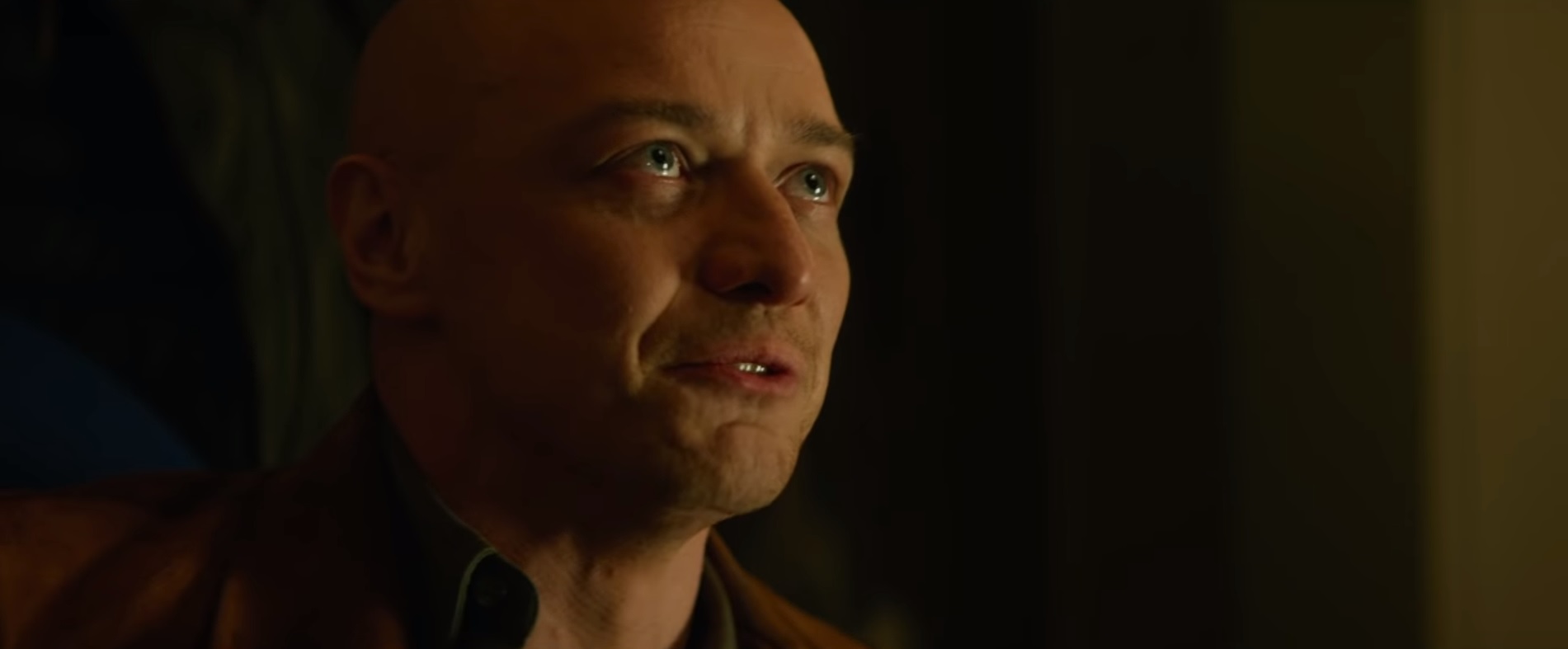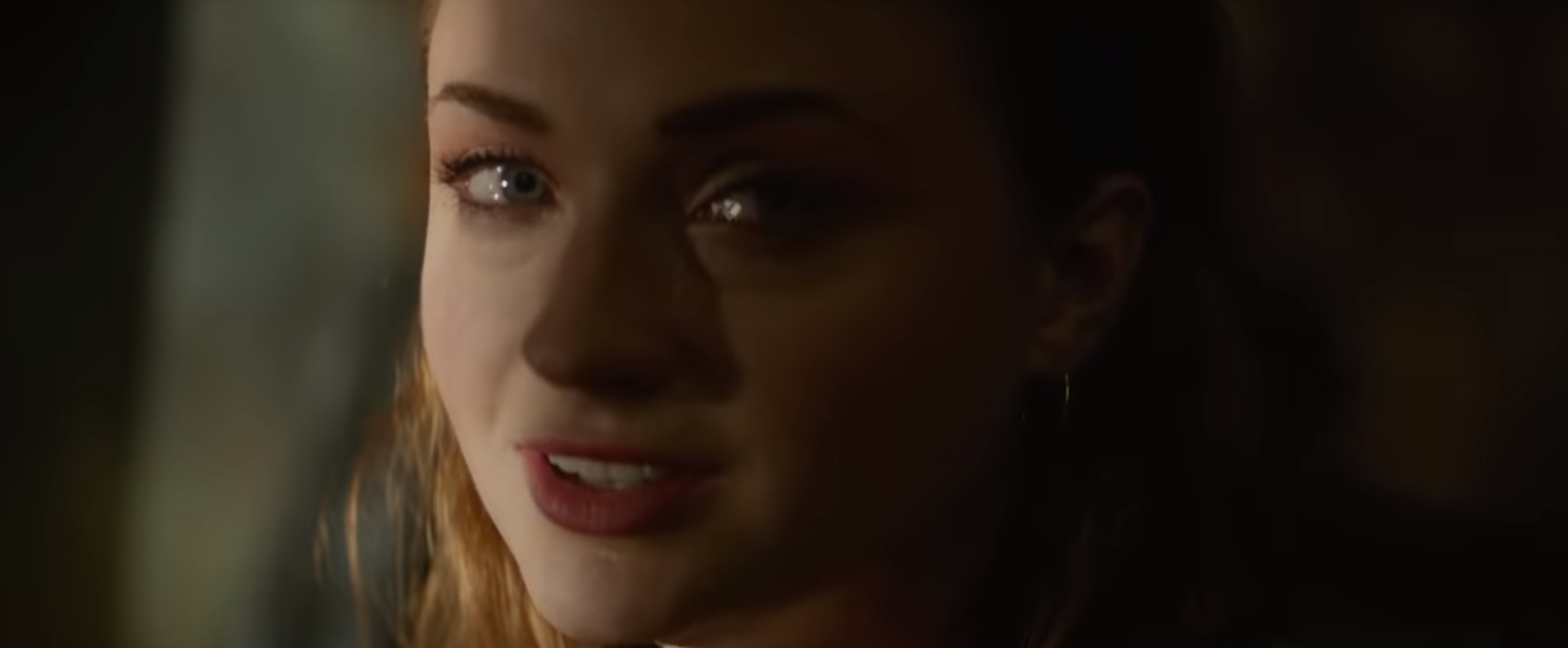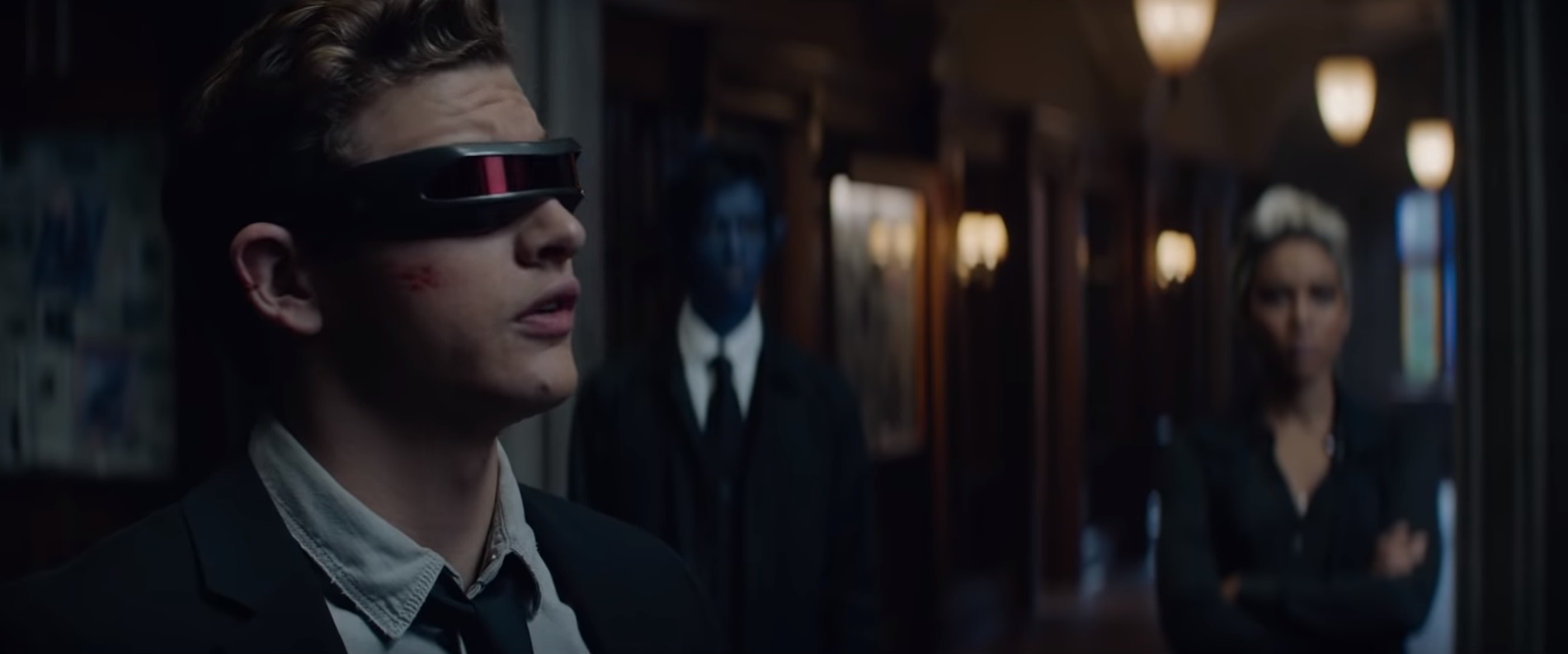Dark Phoenix is different. Its mood, much like the Nolan and James Mangold masterpieces, is joyless and sombre right from its bleak opening scene where little Jean Grey, not knowing how to control her newly developing powers accidentally causes her mom to lose control of the wheel, sending the car crashing into an oncoming lorry. She loses both her parents in that incident. This is an adaptation of one of the most popular comic stories ever. An arc that sees Jean Grey absorb a cosmic power while on a space mission, making her the most powerful and by default, dangerous mutant on the planet. I’m reminded of one of my favourite comic book movies: Captain America: Civil War. What makes it such a riveting story? More than taking on an unstoppable enemy, it’s far more emotionally rewarding to see friend take on friend, family turn on family, to sit at the edge of your seat and beg, in your heart for the fighting to stop. In Dark Phoenix, we see the passionately in love Jean Grey stand up against her lover, Scott Summers. A film where the usually rational and level-headed Hank truly turn into a revenge-hungry Beast. Magneto, whose battles have always been against the humans (he’s the Malcolm X to Professor X’s MLK) decides to kill one of his own. It’s also a film where the usually beloved Professor X is labelled as an egotistical, thick-skinned villain and makes him contemplate the sins of his past. There’s a brilliant scene that takes place after a tragedy befalls the X-Men. Hank (Nicholas Hoult), who’s in pain, soul crushed, blames Charles (James McAvoy) for what happened. You can guess what Charles’ response would be: apologise, cry and perhaps blame himself too. But you’re thinking of Charles from the original X-Men trilogy, aged, matured and experienced. Here, Charles almost lets out a smirk, before denying Hank’s accusations and calling it unfair. Oh, how can anything be Charles Xavier’s fault? The wise and all-knowing. It’s a fantastic sequence, written with grey ink by Simon Kinberg and performed with range and nuance by Hoult and McAvoy. There’s a contradiction between McAvoy’s body language and the words that escape his mouth. It suggests someone who wonders if he’s genuinely wrong, but whose unwavering ego will not let admit.
I just wish the rest of Dark Phoenix is as noteworthy as that scene. For a film like this to truly succeed, to be like The Dark Knight, not just in terms of tone but quality, it cannot just have specks of grey. It requires an artist who is ballsy, one who’s willing to push the envelope, to dunk his paintbrush in a barrel of grey paint and colour his entire picture with it. The grey areas and emotions need to be wallowed in and the psychology of characters explored in such depth, it would make the Atlantic Ocean seem like a kiddie pool. But here, Charles Xavier’s turn from egoistic to vulnerable doesn’t feel earned. The good and bad of his decision to build a wall around Jean Grey’s mind — to lie in the name of protecting her — isn’t weighed. The same can be said about Jean Grey’s internal conflict which plays out more like sentences on a treatment page rather than a fully fleshed out character arc. There isn’t a steady and controlled escalation of tension, rather Jean goes from good to bad to good to bad with each passing scene, sometimes even within the same scene. Her pain and the struggle between light and dark that’s happening in her head should be felt with deep resonance, not summed up in a sentence or two. Sophie Turner is thoroughly effective in the role. Examine the way she smiles when Cyclops tells her that the kids are calling her “Phoenix,” or the way she lets out a smirk — just a tiny one — when she brings down the helicopter, or the gradation in her facial expression when she tells Magneto, “when I lose control, bad things happen… but it feels good.” Turner who brings the right amount of sexy, pain and rage to the table is born for this role. If only she was given enough space on the canvas to spread her wings and showcase more of her range.
All throughout, characters say they feel the weight of the world on their shoulders, but we don’t feel it. Not enough time is dedicated to Cyclops, but it’s paramount to the film that we see him internalising the goings-on. There isn’t enough time devoted to Hank or Charles either. Time is key here. Consider the sequence in Magneto’s colony. The once extreme and rage-fuelled iron bender has now found peace and started a new life with a bunch of other mutants. Jean pays him a visit after the tragedy, looking for advice and guidance. Why isn’t this interesting story beat put under a microscope and delved into? Why aren’t there scenes where Magneto has lengthy conversations with her, baring his soul and allowing her to bare hers? After all, if anyone can understand pain and suffering and being feared upon, it’s Magneto. Instead, we get a couple of quick exchanges (once again, stellar performances) before Magneto uncharacteristically banishes her. It’s character writing that contradicts what we’ve seen from him in First Class, Days of Future Past and Apocalypse.
X-Men: Dark Phoenix is less than two hours long and you feel it. Which is ironic considering that’s a line usually used to describe movies that are agonizingly draggy. A less than two-hour runtime is fine for a film like Deadpool, where the story is simple and straightforward and the focus is on the jokes that come at a rat-a-tat pace. But a film that clearly aspires to be a character-driven drama requires a wider tapestry with more room for characters to breathe and sequences to bloom. Especially considering that it’s an ensemble piece and its predecessor did a terrible job at setting up a lot of the characters we’re supposed to care about profoundly. On top of that, Kinberg even tries to squeeze in a subplot on mutant-human relations and a one-note villain played by Jessica Chastain collecting what is probably the easiest paycheck of her acting career. Here, all the great ideas — and mind you, the ideas are legitimately great — zooms by in a hurry. One more thing. I had actually forgotten who was tapped to compose the score for the film. But an early sequence that sees the X-Men rocket off to space immediately triggered my memory. Watching the scene made me feel like I was experiencing the elevated artwork of the late, great Stanley Kubrick. I started tearing up and I swear my soul departed from my body. But not because of what I was seeing — which was pretty damn ordinary — but what I was hearing. Hans Zimmer ladies and gentleman, whose musical score is rich, atmospheric and textured, far different from the conventional comic book tunes of John Ottman. Boy does Zimmer work his ass off to push the film to greater heights. Considering I just name dropped Stanley Kubrick, it’s safe to say he succeeded.
When we talk about comic book films that changed the landscape of the genre and pop culture, people always bring up 2008, the year that saw The Dark Knight, also the birth year of the MCU. But let’s not forget that after the corny Batman & Robin crapped the bed in 1997, it’s X-Men who first showed the world that there’s a place for ‘grounded’ comic book movies in modern cinema. Since then the franchise has seen plenty of ups (X2, the first two acts of The Wolverine, First Class, Days of Future Past and of course Logan) and plenty of downs (The Last Stand, Wolverine Origins, the 3rd act of The Wolverine and Apocalypse). As for X-Men: Dark Phoenix? Well, it lies somewhere in the middle. A film with great ideas, performances, exemplary score and some cool action sequences (we also, for the first time I believe, get to see Professor X on the field, in battle) that doesn’t quite reach the heights it’s striving to be. But it’s also far from the trainwreck most people were expecting it to be. It’s been such a journey, so here’s to — I say as I raise my proverbial mug of beer — 19 years of wonderful geeky memories; we’ll see you on the other side. Over to you Kevin Feige.
Rating: 2.5/5



